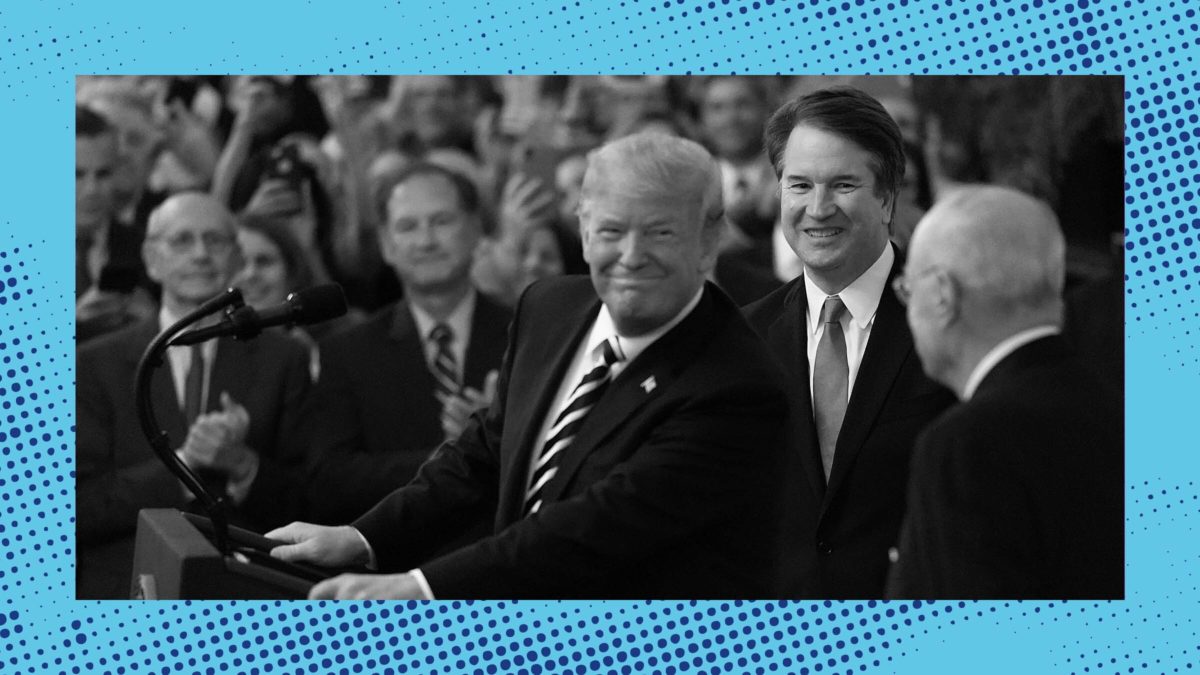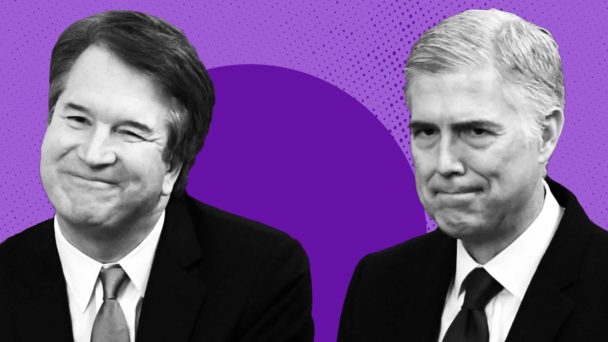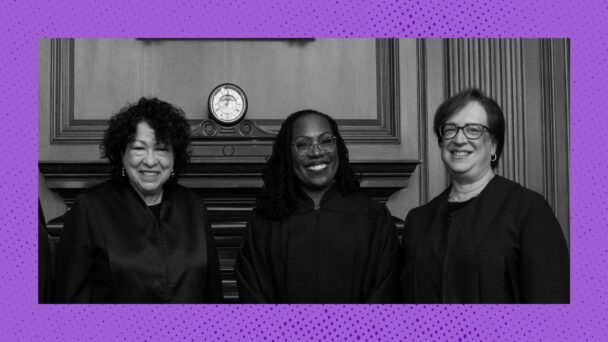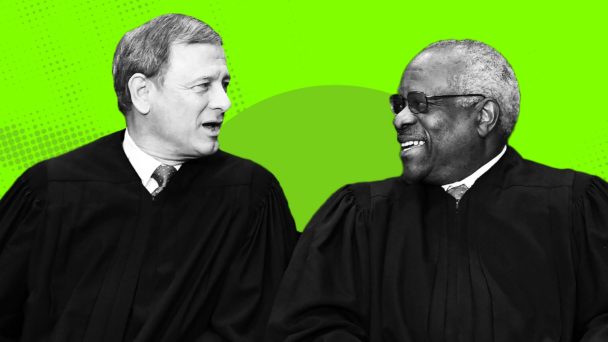Former president Donald Trump was indicted on August 1, 2023 for his attempts to overturn the 2020 presidential election by force and fraud. But the 2024 presidential election is rapidly approaching, and Trump’s election interference trial has yet to begin. Trump is trying hard to keep it that way—and his Republican allies on the Supreme Court are helping him do so.
The Supreme Court heard oral argument this morning in Trump v. United States, a case that will determine whether and when Trump will be tried for the litany of criminal conspiracies it takes to try to overstay your welcome in the White House. His attorney, D. John Sauer, made a series of breathtaking claims during oral argument, which centered on his contention that former presidents have “absolute immunity” from criminal liability for official acts. Under this theory, 270 Electoral College votes legally entitles you not only to the presidency but also to a Get Out of Jail Free Card.
This is not a serious argument, as Sauer himself made exceedingly clear by asserting things like—and I wish I were exaggerating—a president could order the military to do a coup, or sell nuclear secrets to a foreign adversary, or have Seal Team Six straight-up murder a political rival, all without facing criminal consequences. (He did clarify that such conduct might be prosecutable if the president were first impeached by the House and convicted by the Senate. Otherwise, no harm no foul.)
In a way, the oral argument was much like the 2021 insurrection itself: Attorneys shamelessly aided Trump’s effort to reject the rules and processes everyone else must accept, effectively placing himself above the law. Disturbingly, this time around, those attorneys include justices on the Supreme Court.
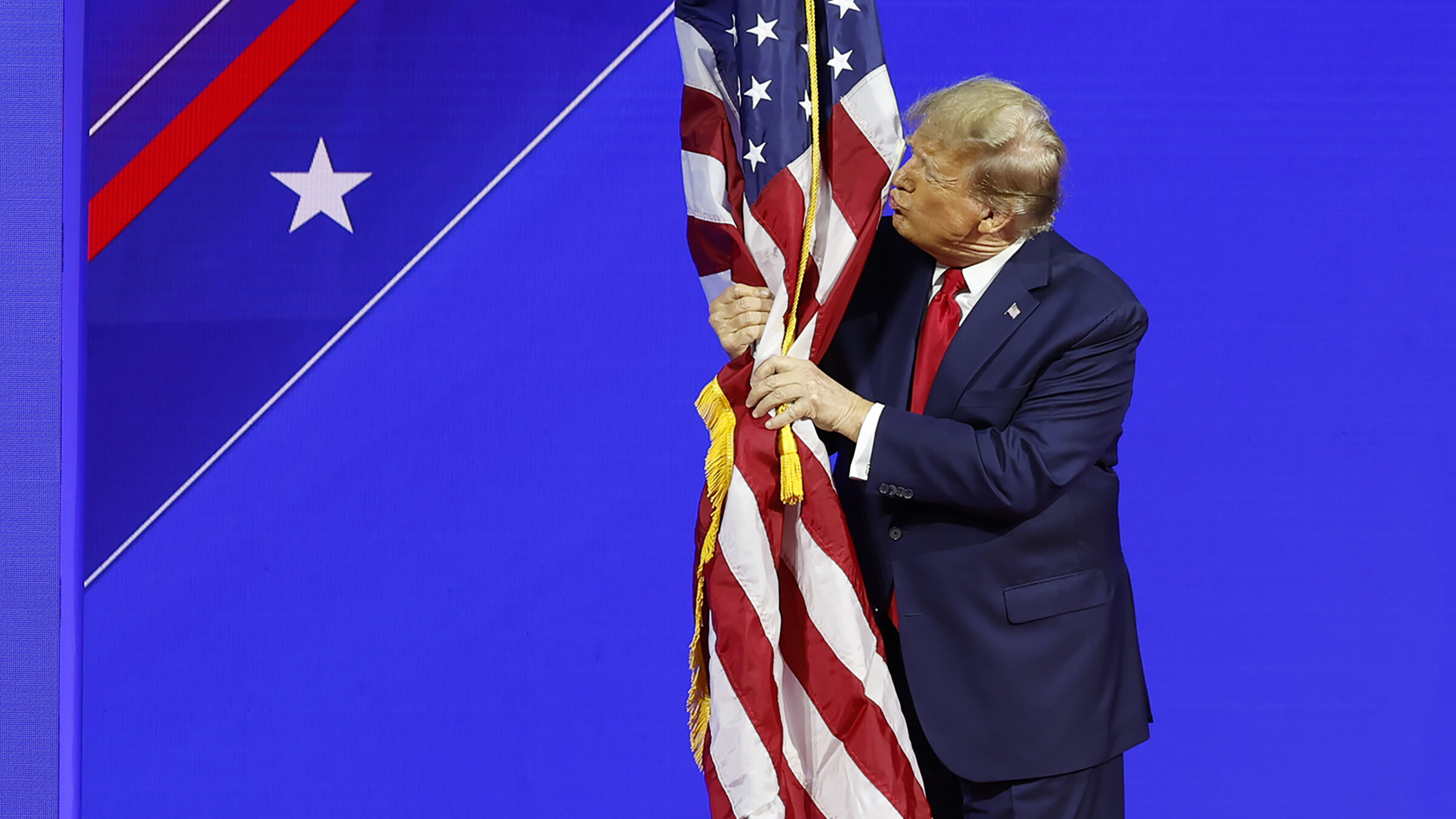
When the justices you appointed are letting you off the hook (Photo by Anna Moneymaker/Getty Images)
For the better part of a year, Trump’s team has openly said that its aim is to delay this trial (and his other criminal trials) until after the November election, since some voters would be less inclined to cast their ballots for a person convicted of trying to overthrow democracy. If he wins the election, he could just order the Department of Justice to drop the charges. But even if Trump fails to reach that moon for which he shoots, the Court’s dawdling could still land him among the stars: here, a trial that begins before the election, but simply doesn’t give the jury enough time to reach a pre-election verdict.
The Supreme Court seems troublingly prepared to make that happen. The Court could have disposed of Trump’s outlandish absolute immunity argument in December, when Special Counsel Jack Smith asked the Court to resolve the question on an expedited schedule. It did not do so.
The Court could have summarily affirmed the unanimous decision of the D.C. Circuit Court in February that, yes, of course Trump could be prosecuted. It did not do so.
The Court could have scheduled oral argument for any time between then and now, the very last day of the Court’s term. It did not do so.
And now, the Court could allow prosecution to begin immediately. But it appears unlikely to do so. Although several justices were skeptical of Trump’s claim to blanket immunity, some seemed receptive to the idea that there are difficult factual questions about what gets immunity and what doesn’t. The Republican justices were particularly interested in distinguishing “official acts” for which a public official may have immunity from private conduct for which an official could be freely prosecuted, and determining to what extent the big bad Department of Justice could be weaponized against innocent future crooks-in-chief. By remanding these questions to the lower courts, the justices could further delay the actual prosecution and push accountability farther out of reach.
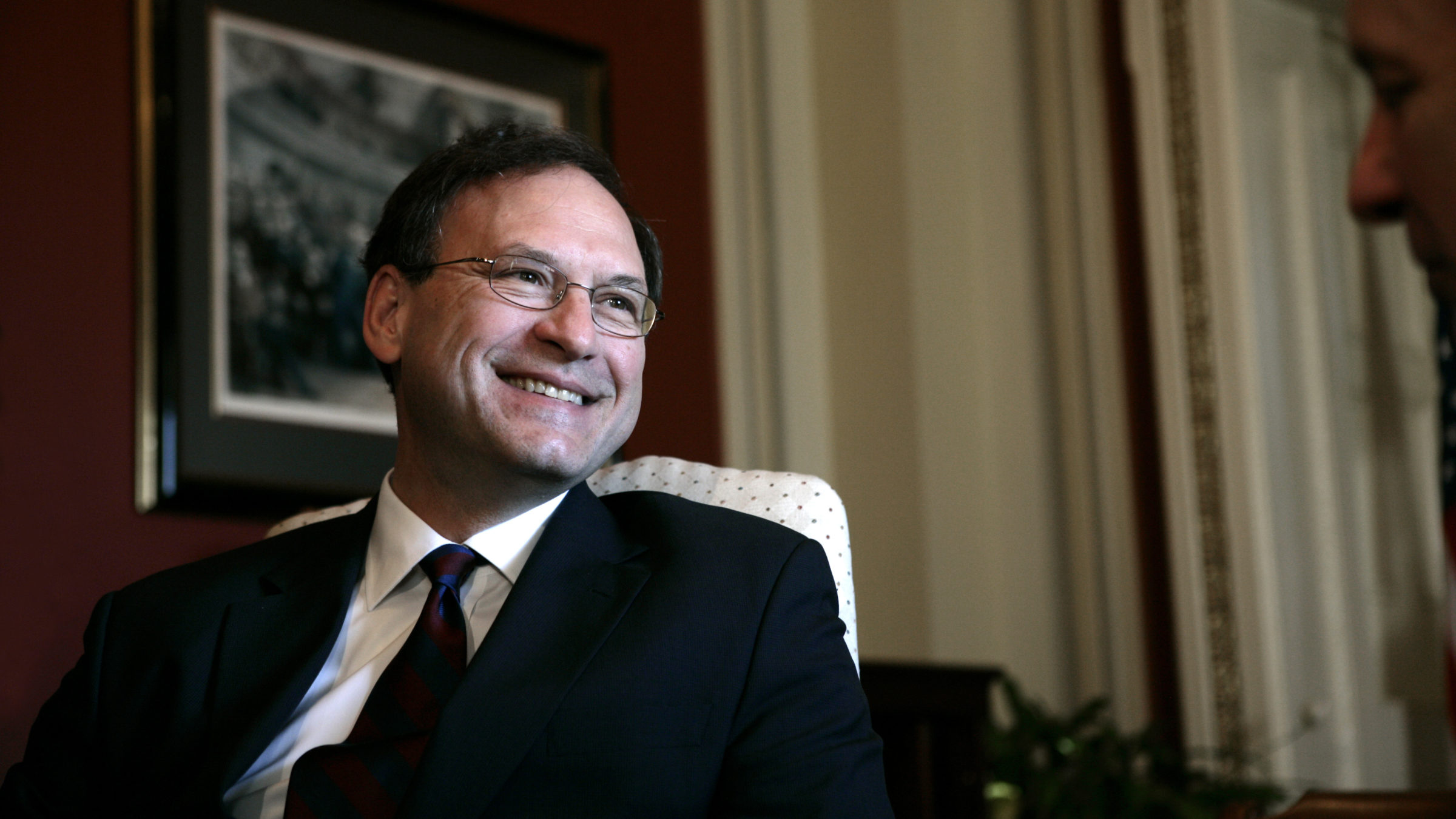
When the coup succeeds this time (Photo by Brooks Kraft LLC/Corbis via Getty Images)
Justice Brett Kavanaugh, who famously cut his teeth in the conservative legal movement by working to impeach President Bill Clinton over an extramarital affair, pointed out that laws “can be used against a lot of presidential activities, historically, with a creative prosecutor who wants to go after a president.” Justice Sam Alito was a bit more direct: “The vast majority of attorneys general and Justice Department attorneys are honorable people and they take their professional ethical responsibilities seriously. But there have been exceptions, right?”
Chief Justice John Roberts similarly voiced concern that the D.C. Circuit’s opinion assumed that prosecutors seeking indictments act in good faith. “Now, you know how easy it is in many cases for a prosecutor to get a grand jury to bring an indictment. And reliance on the good faith of the prosecutor may not be enough in some cases. I’m not suggesting here,” he told the government’s lawyer. But, Roberts continued, the D.C. Circuit’s opinion was “tautological,” basically saying that a former president can legally be prosecuted because a former president is, in the real world, being prosecuted. “Why shouldn’t we either send it back to the court of appeals, or issue an opinion making clear that that’s not the law?” he asked.
While the Court could steer clear of the most plainly absurd outcome in this case, a remand still marches the country headfirst into an antidemocratic disaster. The American public will still not have the benefit of a jury verdict before the November election. The Court will still have attempted to sway the presidential election to a white supremacist authoritarian sex offender. And Trump will still have no incentive not to try to illegally seize power, again, with the benefit of a practice run four years ago.
At one point during questioning, Justice Ketanji Brown Jackson pondered the grim consequences of an absence of accountability for “the most powerful person in the world, with the greatest amount of authority,” who “could go into office knowing that there would be no potential penalty for committing crimes.” She continued, “I’m trying to understand what the disincentive is from turning the Oval Office into the seat of criminal activity in this country.” The regrettable answer to her question may simply be that such a disincentive does not exist.
